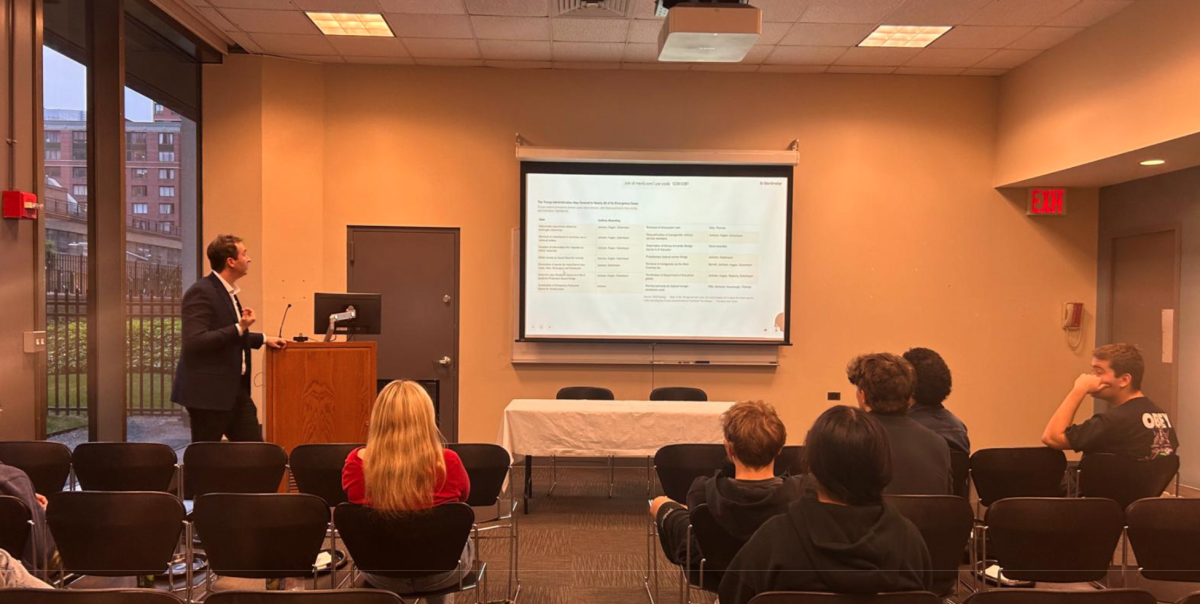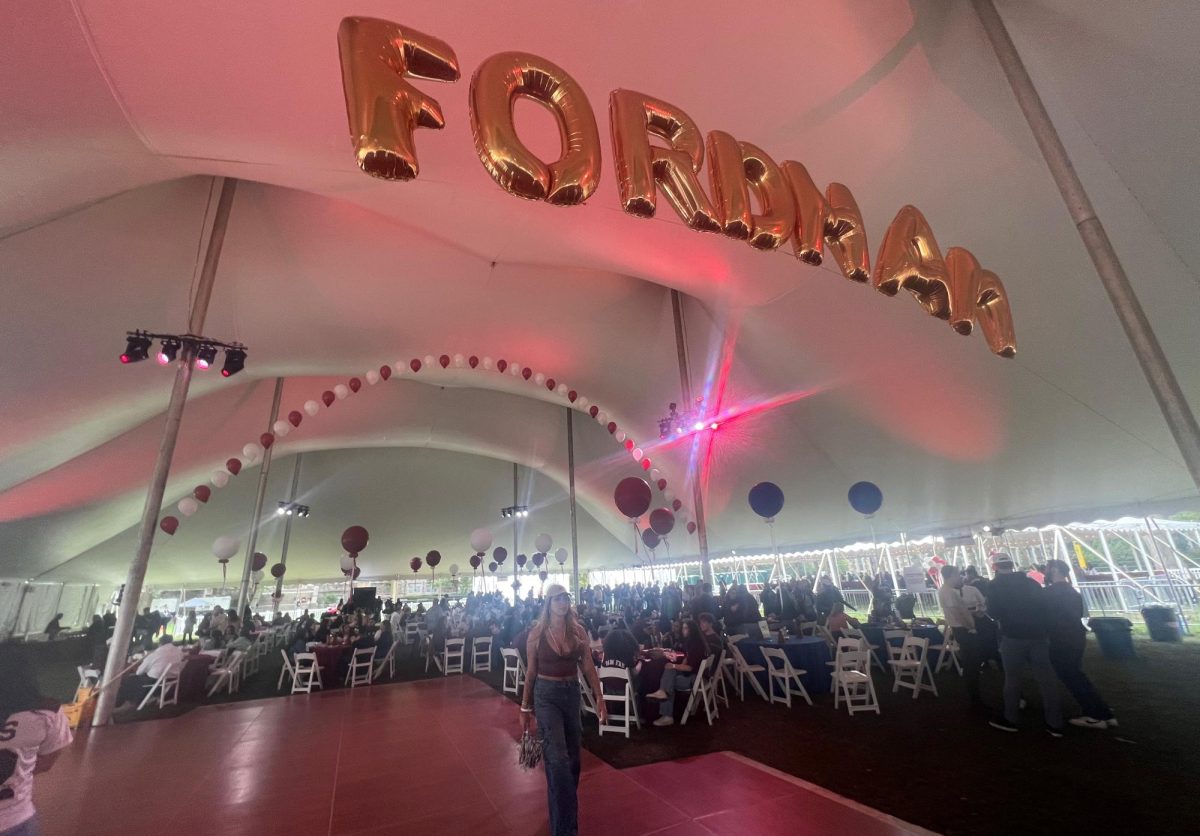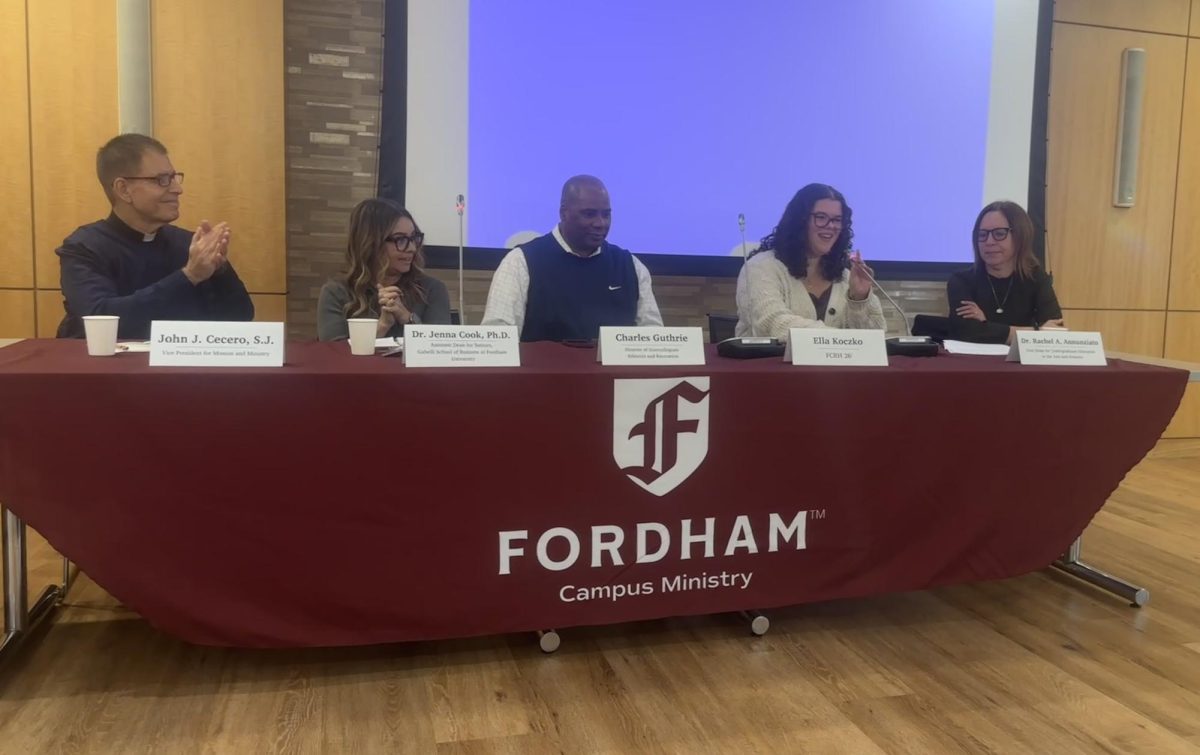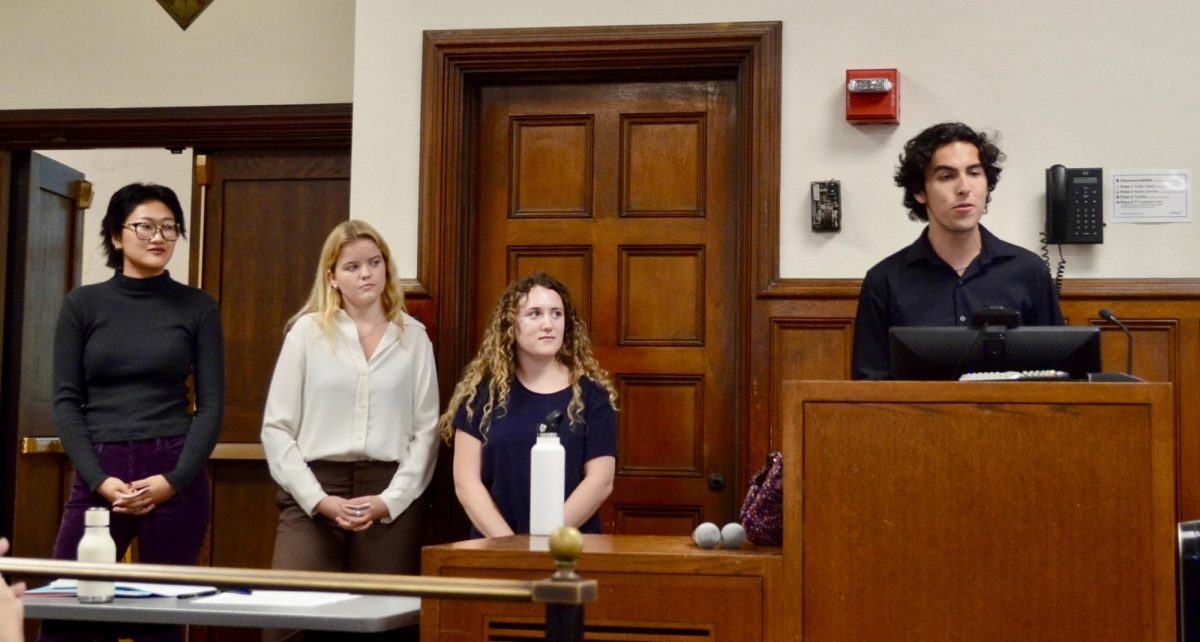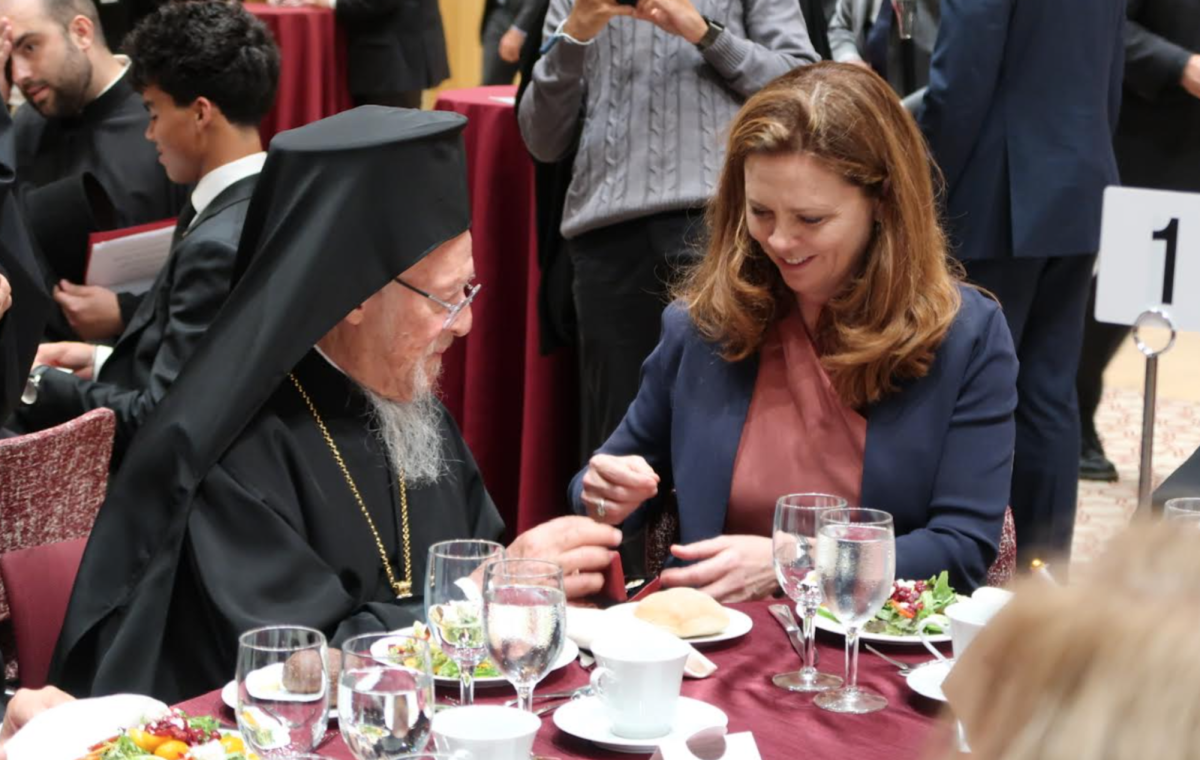Fordham University hosted a Constitution Day event at the university’s Lincoln Center campus on Sept. 17 to commemorate the signing of the U.S. Constitution on that same day in 1787. The event involved conversations regarding the Supreme Court’s past and upcoming terms.
Dr. Robert Hume, professor of political science and vice dean for faculty affairs, led the event, which aligned with the U.S. Department of Education’s (DOE) specific requirement that all educational institutions receiving federal funding must hold a Constitution Day program.
This federal requirement has limited guidelines for what the educational event should entail. “The U.S. Department of Education does not direct or control particular curricula or lesson plans,” according to the DOE website.
Hume decided to focus on how Supreme Court Justices’ political standings influence their policy decisions, what role politics and law play in the courtroom and how the Constitution can be interpreted in vastly different ways.
One of the main focuses of Hume’s presentation was how each Justice’s political beliefs and personal interpretation play a large part in the Supreme Court’s decision-making. Students were asked their thoughts on whether or not they thought law and politics play a role and whether they think it should.
“It was very interesting [to get] background knowledge as to how much politics and law influence Supreme Court outcomes,” said Sebastian Orth, FCRH ’26.
Hume said his main goal was to give students a “fuller perspective of the range of factors that influence judging,” and to understand how much room there is in interpreting the Constitution.
Hume does not see the Constitution as a “one size fits all” and instead thinks it is up to each individual to decide how to approach the Constitution and its meaning. Hume wants students to fully understand “what the Constitution means, what’s in the scope of the power of government institutions [and] what the scope for rights and liberties are.”
He believes judges strive to act as professionals who can put aside their political views while making decisions that affect the nation. Still, he said that “in areas where judges have discretion and their professional values might point in a number of different directions, it’s also reasonable to think that politics might fill in some gaps.”
In addition to complying with federal law, this event left students with broader knowledge of the judicial system. “I thought it was very interesting talking about different types of [Supreme Court] decisions,” Orth said.
Orth also said he would have liked for pocket Constitutions to be handed out. In 2023 and 2024, Fordham handed them out to students at different locations around campus, but the initiative wasn’t continued this year.
“I’m interested in studying law eventually,” Orth said when asked why he decided to attend. “I’m also taking a constitutional law class currently, so I thought that this would be a very good supplemental thing to attend.”





































































































































































































